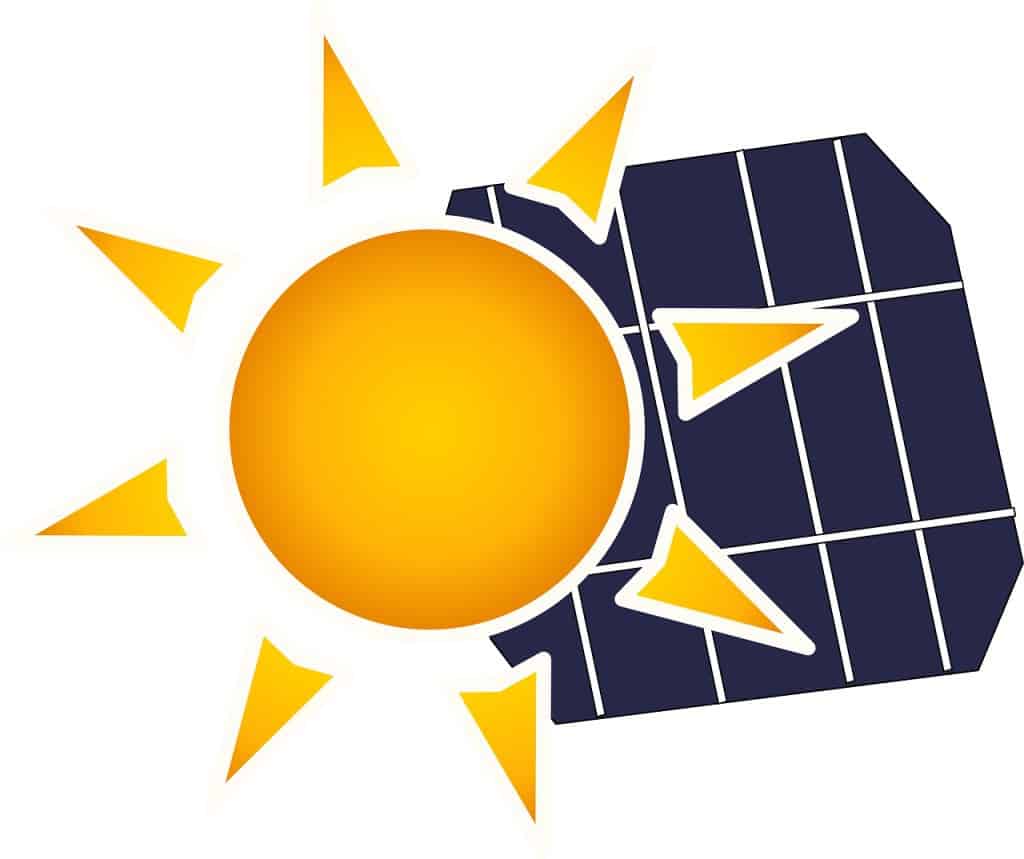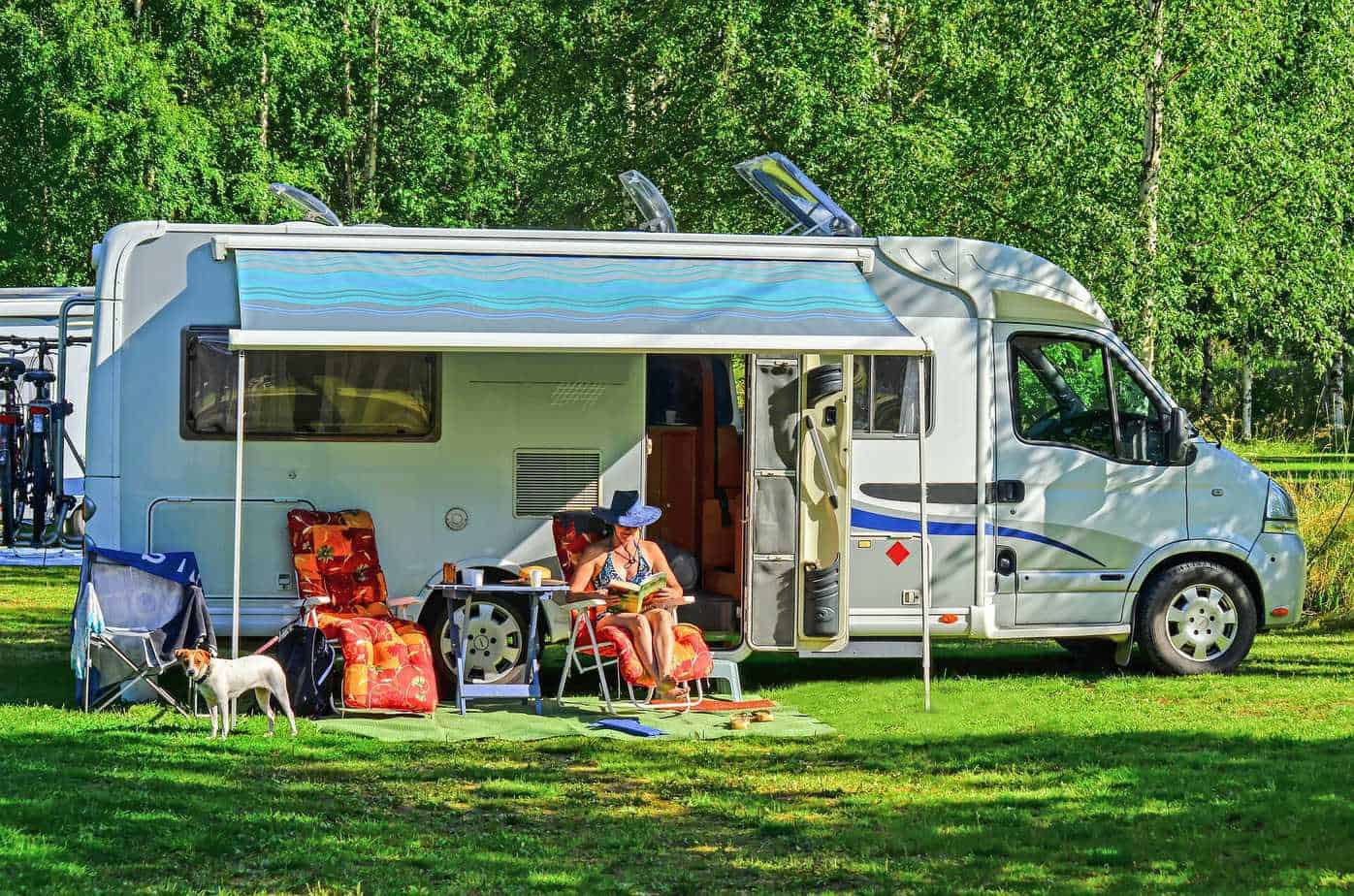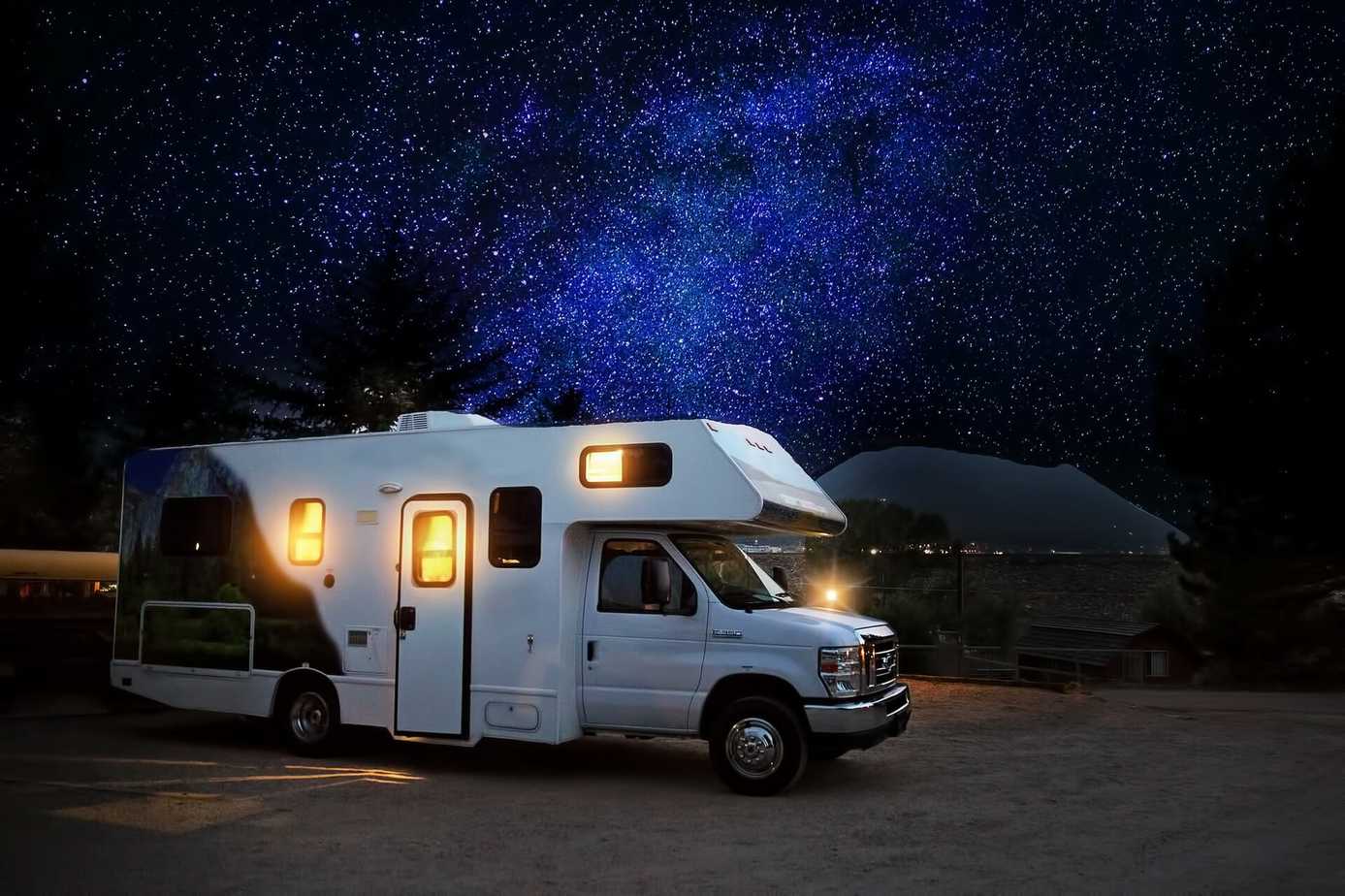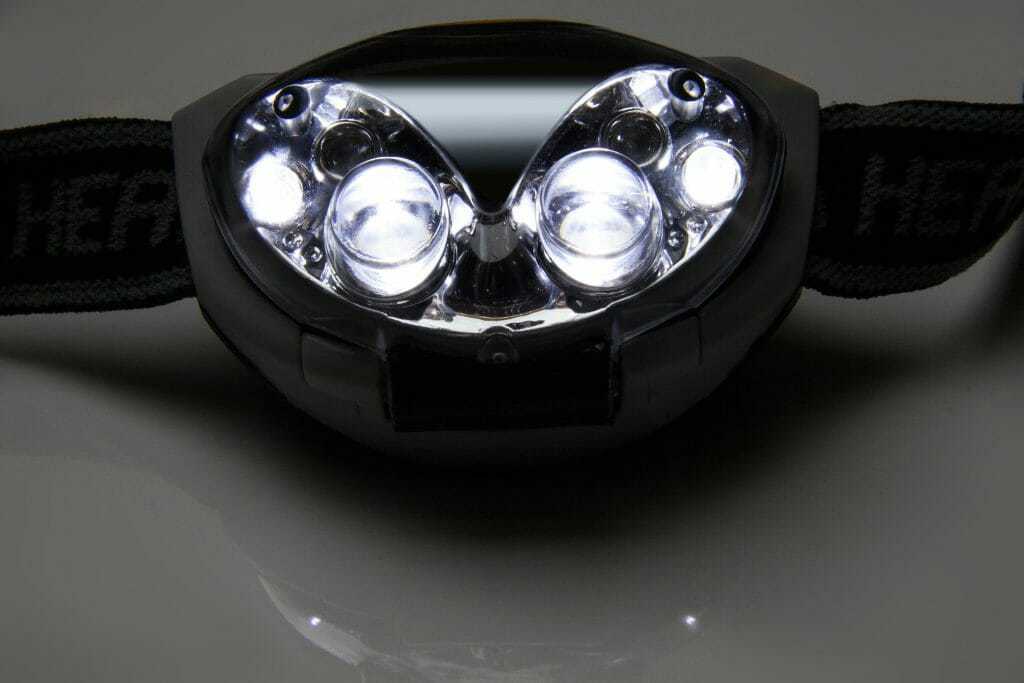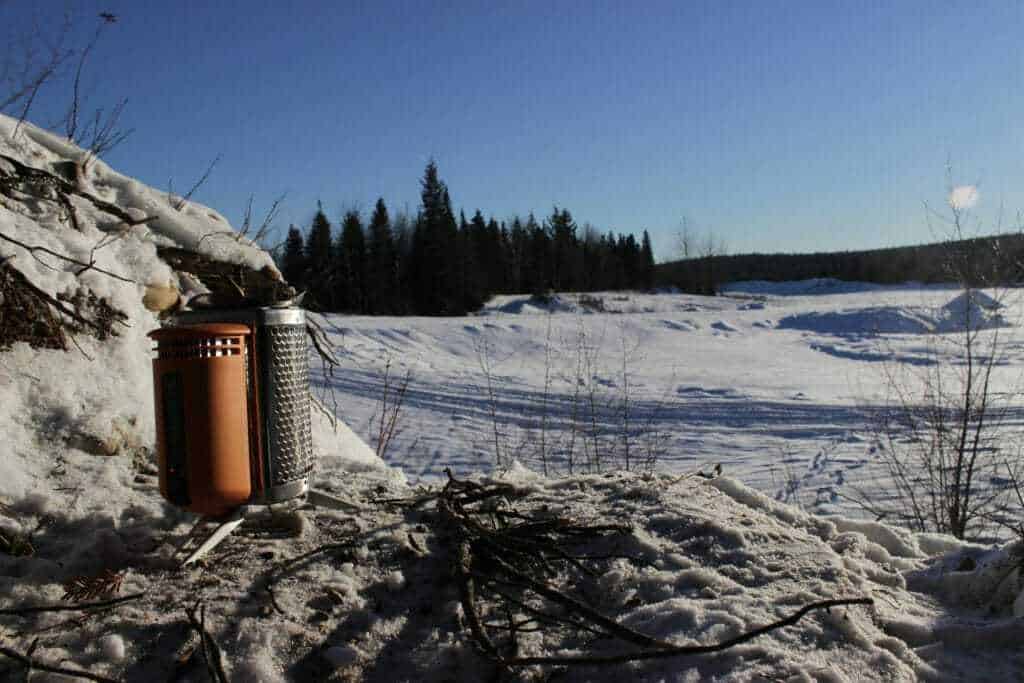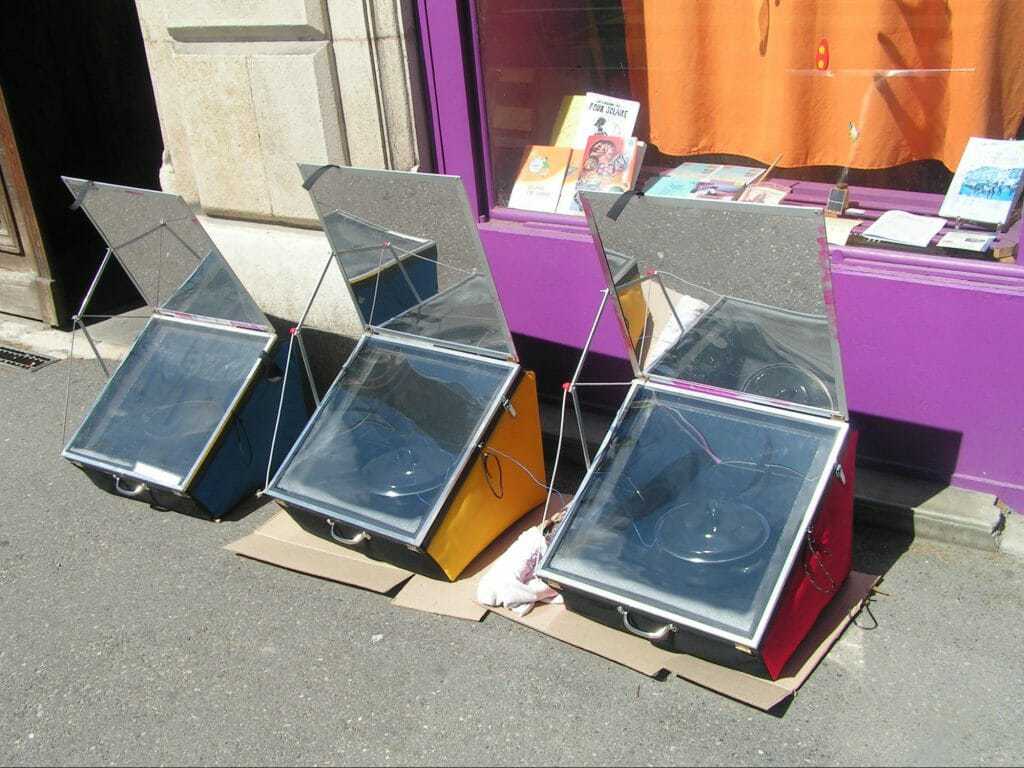Whether you are taking a vacation in your RV, or living the RV life full time, there are many different ways to reduce the cost of your adventures and go greener. You may not think of RVs as an eco-friendly option. But there are many ways to make sure that your RV trips do not cost the earth – literally or metaphorically speaking. One of the main ways to save energy is, of course, to limit fuel consumption as you drive your RV. In this article, however, we’ll take a look at some RV energy saving tips to help you save on the energy you use to heat and light your space, run appliances and cook food.
Why Save Energy In Your RV?
If you plug into the electrical grid, you are likely to be consuming fossil fuels and contributing to global warming. You are also likely to be consuming propane and other polluting fuels for space heating and cooking. Fortunately, there are alternatives. Solar panels on an RV can provide for all your electricity needs, and eco-friendly alternatives are also available for heating, cooking and your other needs.
Even if you do not have the budget for a full solar installation, reducing your current energy needs can significantly reduce your carbon footprint. Fortunately, there are plenty of ways to reduce energy consumption in your RV.
What is good for the planet can also be good for you. Electricity can be expensive, and so can fuels such as propane. Saving energy in your RV and switching to alternative energy sources can be good for your budget.
RV Heating Energy Saving Tips
Let’s begin by looking at some of the ways that you can save money on heating your RV during the winter months:
Take Advantage of Passive Solar Gain
One of the easiest ways to reduce the heating requirements in your RV is to take advantage of the free energy of the sunlight that comes in during the day. By parking with the main areas of glazing facing south (in the northern hemisphere) or north (in the southern hemisphere) you can maximise the heat (and light) that enters the space while the sun in shining.
In cold weather, avoid parking in the shade of trees or structures, and think about how you can position the vehicle to make the most of the sunshine. (Considering sunshine and doing the opposite can also help you keep your RV cool during the summer months.)
This RV owner takes advantage of the summer sun. In winter, positioning the RV to take advantage of sunshine is even more important.
Invite Some Friends or Family In
It may sound a little odd, but when it comes to winter warming, the more the merrier! The more people you can cram into your RV, the more you can take advantage of the radiant heat we all give off. Throwing a little party in your RV is one super simple way to warm things up a bit. On average, each person gives off about the same amount of energy as a 100 Watt bulb. This may not seem like much, but when it comes to saving energy, every little helps!
Consider Alternative, Off-Grid Heating Solutions
Rather than running a propane heater in your RV, if you are serious about saving energy and going greener you could also consider switching to alternative, off-grid, eco-friendly heating solutions. These might include:
- a solid fuel heater such as a stove burning biofuel briquettes or wood
- a rocket mass stove (for ultra-efficient solid fuel burning)
- efficient electrical space and water heaters, which could be run from renewable sources of energy such as solar panels.
Check Seals & Make Repairs to Windows & Doors
Before investing in a new heater or heating system however, it is important to cut down on heat loss in order to save energy. Before you do anything else, make sure that your RV is in good repair. Check all the seals around windows and doors. Make any necessary repairs to cut down on heat loss.
Add (or Improve) Insulation
If you have a new, modern RV then it may already have excellent in-built insulation on the wall panels. If you have an older model, however, the insulation may leave something to be desired.
Eco friendly insulation such as wool or hemp based products or fibres from recycled clothing could be placed in heat-loss problem areas such as at the back of storage compartments and around the places where pipes or wiring enter the living compartment.
Insulation made from wool – one eco-friendly option to improve RV insulation.
DIY Double Glazing
Much of the heat lost in an RV exits through the glazing of windows and doors. Again, if you have a modern RV, with double glazing, you are unlikely to have too much of a problem in this regard. However, with older RVs, the glazing can be insufficient for the cold in winter.
New glazing could be very expensive. But even without spending a fortune, you can make things a whole lot better with your own cheap DIY double glazing.
You can also improve heat loss somewhat with thermal window blinds. If you are of a creative bent, you could even make your own to save money.
Consider RV Skirting
Much of the heat in an RV is also lost through the floor. As wind whistles below the living area, it can significantly reduce the temperature within. Putting on some RV skirting can make a big difference to how much heat is conserved.
Cover Vents in Cold Temperatures
While it is important to maintain adequate ventilation in your RV throughout the year, you can sometimes consider covering certain vents during particularly cold weather in order to prevent cold wind from whistling inside.
Invest in Good Winter Bedding
Last but not least, staying warm in winter does not always require an energy hungry heating system. Investing in good winter bedding, rated down to the temperatures that you will be experiencing at night, will ensure that even when it gets chilly inside your RV, you will be snug as a bug in a rug.
RV Lighting Energy Saving Tips
Another consideration when looking at energy saving is how you light your RV. Some RV lighting energy saving tips can be found below:
Switch To Low Energy LED Lighting
If your RV does not currently have low energy lighting then you should definitely consider retrofitting the space with low energy LED lighting which will consume far less electricity than standard RV lighting.
Always Switch Off Lights When They Are Not Needed
This may seem obvious, but often, on campsites, you will see RVs with the lights blazing away while outside the light levels are still relatively high and even when the owners are outdoors. Get used to flipping that switch to make sure you are not using energy that you do not need to use. Turn on only the lights you really need, and only when you really need them.
Do you really need those lights? Consider switching them off and enjoying the stars instead.
Consider Low-Tech/ Off Grid Lighting Solutions
An LED headtorch is one eco-friendly lighting option for use in an RV and around camp.
You do not necessarily need to rely on the interior lights of your RV when camping. You could consider lighting the space with low-energy battery powered lanterns, or even with eco-friendly portable camping lights such as:
- Simple wax candles.(Keeping fire safety in mind).
- Wind-up (hand-cranked) LED lanterns.
- Portable, solar-powered lights.
RV Appliances Energy Saving Tips
As well as thinking about heating and lighting your RV energy saving is also about considering all the appliances you use in your RV, from the fridge and cooking appliances, to fans, hair dryers etc.. You will find some RV appliance related energy saving tips below:
Choose Ultra-Efficient Options When Buying New Appliances
If you need a new fridge or other any other appliance for your RV, be sure to choose an ultra-efficient option. Information on the energy rating can usually be found at point of purchase, so you can compare your options to find out which uses the least energy. Pay attention to whether the appliance in question runs on electricity, propane, or both.
Avoid Unnecessary Gadgets or Appliances
Often, less is more when it comes to RV gadgets and appliances. Energy savings are best advised to keep things simple, and avoid purchasing and using any gadgets or appliances that are not strictly necessary. Reducing consumption, along with reusing and recycling, is one of the three pillars of green living. It is simple. The fewer appliances and gadgets you use in your RV, the less energy you will use.
Switch Off The Inverter When Not Running AC Appliances
If you use an inverter in your RV, remember that even when appliances are not on, it can often draw a small amount of current. Switch it off when not running appliances to save energy. Every little helps.
Switch Off the Refrigerator When in Transit On Short Journeys
A modern refrigerator will usually be well insulated, and perfectly able to keep things cool on short journeys. Rather than wasting power, it is generally better to simply switch it off while you are in transit if you are not travelling too far.
Consider Eco-Friendly Portable Appliances
Rather than running small appliances from your RVs electrical system, consider choosing instead portable appliances which either have their own built-in rechargeable batteries, or are powered by other green means. Such appliances might include:
- Solar powered or hand cranked radios.
- Solar powered or manual fans.
- Solar powered or solid-fuel powered cell phone chargers/ power banks. (These can be used to charge small electrical devices.)
This Biolite solid fuel stove will power your cell phone or other devices.
RV Cooking Energy Saving Tips
Another key way that you use energy in your RV is when cooking. Whether you have electrical or propane powered cooking options inbuilt, there are a number of ways you can save energy when preparing food.
Consider Cooking With the Renewable Fuel Sources
Rather than relying on the cooking equipment in-built to your RV all the time, consider other means to cook food, including:
- Simple campfire cooking.
- Eco-friendly camping stoves.
- Solar ovens. (In hotter climes, these can be very effective. You could even make your own.)
Here are some solar ovens that you could consider using while camping in your RV.
Place the Lid on Pots When Cooking To Conserve Fuel
However you choose to cook, taking simple measures such as placing the lids on pots when cooking can help to conserve fuel.
Boil Water With a Kettle Rather Than in an Open Pot
Rather than heating water to boiling point in an open pot, use a closed kettle. When cooking rice, pasta or potatoes, for example, boil the water in a kettle first. By doing so, you will save energy. RV energy saving is sometimes about these small things.
Cook Meals or Keep Food or Drink Warm With a Hay Box Oven
Another way to save energy when cooking is with a hay box oven. A hay box oven (which you can easily make yourself) is basically an insulated container. By heating a pan of food or a kettle of water for a short time and placing it within, you can retain the temperature and allow food to slow cook or water to stay warm.
Using an insulated flask for hot drinks can also allow you to save energy, by using a kettle to boil water less often.
The RV energy saving tips above should help you to go greener and save money – a win for you and a win for the planet.

Elizabeth Waddington has an MA from St. Andrews University and a Permaculture Design Certificate. She is a green living consultant, with a passion for sustainable travel, permaculture and the natural world. She lives in rural Fife, just north of Edinburgh, close to the Firth of Forth on the east coast of Scotland.
No stranger to RV travel, Elizabeth has travelled all over Scotland, the UK and beyond in search of natural wonders in her RV. Her camping adventures have taken her to the Grand Canyon, up the Pacific Coast of the US, to Yellowstone National Park, the Grand Tetons and to explore the wonders of Utah. She has travelled extensively in the Pacific Northwest, and around New England. In Europe, she has taken trips through much of the western part of the continent, travelled up to Norway, and down through Romania and Bulgaria to Istanbul. She looks forward to further eco-friendly adventures.
